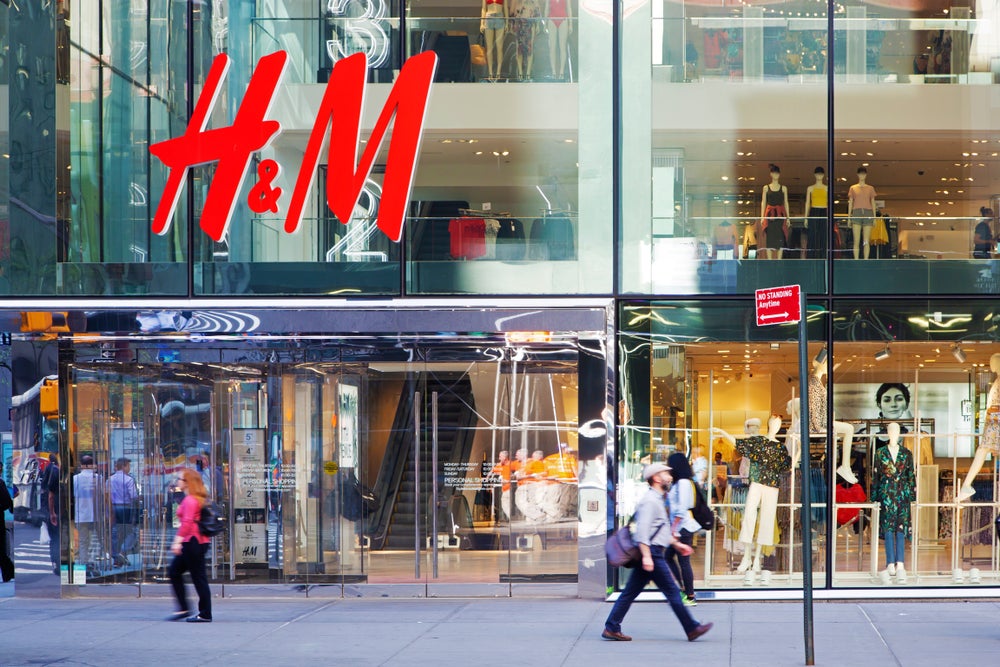
H&M shares that after careful consideration it has taken the decision to gradually phase out operations in Myanmar.
The brand explains: “During this process, we will continue to engage with our stakeholders as part of our enhanced due diligence process. We have been monitoring the latest developments in Myanmar very closely and we see increased challenges to conduct our operations according to our standards and requirements.”
H&M expressed concerns earlier this week (16 August) over alleged cases of worker labour abuses in garment factories in Myanmar.
Rise in workers’ rights abuse allegations
The garment workers experiencing human rights violations are said to be producing for at least 46 global fashion brands and retailers.
The human rights organisation further highlights there has been a significant rise in allegations from 56 between February 2021 to February 2022, to 156 allegations in the subsequent 12 months.

US Tariffs are shifting - will you react or anticipate?
Don’t let policy changes catch you off guard. Stay proactive with real-time data and expert analysis.
By GlobalDataH&M says that all the cases raised in the report by BHRRC are being followed-up and where needed remediated through its local team on the ground and in close cooperation with relevant stakeholders.
It adds: “We are deeply concerned by the latest developments in Myanmar, and we see increased challenges to conduct our operations according to our standards and requirements. We are monitoring the current situation very closely and evaluating it in close dialogue with relevant local and international stakeholders.”
The report further outlines the key concerning issues:
- Wage reduction and wage theft remain the most reported allegations (linked to over half of the cases, 55%), followed by unfair dismissal (42% of cases) and inhumane work rates and forced (and often unpaid) overtime (42% of cases).
- Gender-based violence and harassment, including verbal, psychological and physical abuse, and pregnancy discrimination, is widespread. The Tracker recorded multiple instances of women being threatened and unfairly dismissed for not meeting production targets.
- Attacks on garment workers’ civil liberties take various forms, including attacks on freedom of association in the workplace (26% of allegations) as the crackdown on trade unions continues. The Tracker also documents employer-military collusion (linked to 15% of allegations), whereby employers call the military into factories to intimidate workers, and the military is able to enter workplaces to target pro-democracy activists.
- Amid this crackdown on freedom of association, apparel brands are disproportionately relying on alternative forms of stakeholder engagement; from multi-stakeholder and industry initiatives to communication through worker-voice technology and Workplace Coordinating Committees (WCCs), the latter of which are tacitly condoned by the military as trade unions are persecuted.
Where does the apparel industry stand?
Apparel brands and retailers have been urged since the Myanmar coup and associated abuse of human and work rights, to sever ties and shut operations in the country.
Despite the continued calls by human rights advocacy groups, fashion retailers and brands continue to operate supply chains either directly or indirectly in Myanmar.
IndustriAll also called out H&M earlier in May, saying that H&M’s responsible business practices have cemented a constructive relationship with the global union but despite this, the Swedish fashion group “refuses to stop sourcing from Myanmar, a military dictatorship.”
The latest brand to exit Myanmar amidst increased tensions in the country is Inditex, the owner of Spanish fashion retailer Zara. Inditex confirmed its phased and responsible exit from Myanmar, which a GlobalData analyst believes is a decision that should have minimal consequence for the retailer.
In addition to this, according to GlobalData’s analytics, Myanmar remains a key region of concern in terms of human rights abuses for apparel companies, with mentions of “Myanmar” in company filings having increased twofold since 2016.



